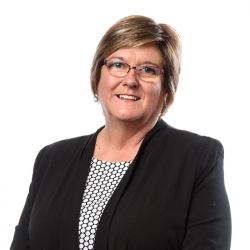Local government peak bodies around Australia are swinging into action as councils find themselves thrust into a frontline role in preparing for and responding to the coronavirus pandemic.
Local government associations contacted by Government News say they are working with state governments, ensuring information is communicated to members and preparing to monitor and co-ordinate local responses.
Emergency management
The Local Government Association of Queensland (LGQA) has a seat at the table with on the Queensland Disaster Management Committee to help manage the response to the COVID-19 pandemic.

“Given our state’s size and decentralised population, councils must play a primary, on-the-ground role,” acting CEO Sarah Buckler told Government News.
“Councils are not just the level of government closest to the community but in Queensland they also deliver essential services, so it is critical local government is involved in both preparing for and responding to Covid-19 both on behalf of their own operations and their communities.”
In a circular to members Ms Buckler said LGQA would ensure the voice of councils was heard and would continue advocate for support to help local communities to weather the economic impact of the pandemic.
Delivering the health message
Ruth Gstrein, Deputy President (Rural) of Municipal Association of Victoria, says MAV is integrated into the Victorian Government emergency and public health framework and was stepping up information dissemination.
“We are disseminating key messages to the Victorian local government communications network for use in council messages for the community,” she told Government News.
“Councils deliver a range of important community health and infrastructure services that may be impacted by the ongoing response to COVID-19.”

Local Government NSW has also prepared advice for councils by collating information from various sources, including The Office of Local Government, NSW Health and The City of Sydney.
“We can all help to make sure people have facts and resources to reduce the risk of transmission and manage and contain incidences of the COVID-19 Novel Coronavirus in Australia,” a LGNSW spokesperson told Government News.
Part of a multi-agency response
Tracey Roberts, President of Western Australian Local Government Association, says WALGA has been working to support members in a multi-agency response to the pandemic.
It has been sharing relevant resources from state and Commonwealth governments, representing the sector at State Emergency Coordination Group meetings, and advocating for local government to be considered in ongoing communications and scenario planning.
“It’s critical that we maintain a coordinated approach throughout this whole process, and WALGA will be liaising, on behalf of the sector, with the lead agencies to ensure this continues,” Ms Roberts told Government News.
Local governments will be provided with a State Pandemic Plan to assist them in reviewing their existing arrangements to prepare for impacts of the pandemic, such as Public Health Plans, Local Emergency Management Plans and business continuity plans.
Councils will also prioritise essential services to be delivered by fewer staff if they are called upon by the state to assist in the area of environmental health or if the workforce is depleted.
“The sector is also aware of the need to respond to social and economic impacts arising from downturn in tourism, cancellation of major events and disruption to local supply chains,” Ms Roberts said.
Co-ordinating the health framework
Sean Holden, Chief Executive Officer of Local Government Association of the Northern Territory, says LGANT is in the process of putting out information for councils.
Unlike peak bodies in other states, LGANT does not have a formal role representing and coordinating the sector in the case of emergencies.
However on behalf of its members, it has offered assistance to the Chief Minister of the Northern Territory to contain the spread of the virus and protect the health of individuals and communities.
Councils are not just the level of government closest to the community but they also deliver essential services, so it is critical local government is involved in both preparing for and responding to Covid-19 both on behalf of their own operations and their communities – LGAQ Acting CEO Sarah Buckler
Mr Holden says local councils have an important role in responding to COVID-19 as they are the closest to their communities.
“(We) have the skills, experience and service framework and structures already in place to assist the NT Department of Health in particular coordinate local responses,” he told Government News.
“The unique role local councils have to play in dealing with the spread of the virus hinge on not only being close to their constituents but that councils are a trusted source of information, provide shelter and advice and can be trusted to look after the best interests of the communities they serve.”
Identifying local issues
Dion Lester, Acting CEO of Local Government Association of Tasmania, says LGAT is working closely with the state government to help councils prepare for the outbreak, through its role on the Special State Emergency Management Committee.
“This includes supporting councils in them having up to date business continuity plans that consider specific pandemic management measures and also identifying any sectoral issues that may need to be addressed with the support of the state government,” he told Government News.
Comment has been sought from Local Government Association of South Australia.
Library closures

Individual councils are also taking action with closures of libraries and events cancelled. Following the announcement of a national ban on gatherings of more than 500 people last week the City of Melbourne on Monday said it would temporarily close public libraries and cultural and recreation centres, including swimming venues, from Monday.
The closure will affect six libraries and four recreation centres which will shut down until the end of March, with the possibility of the closure being extended.
Visitor services offered by the City of Melbourne’s more than 400 ‘red coat’ ambassadors will also be suspended until further notice and permits will be issued for events of 500 people or more for the foreseeable future.
“While none of our staff members have been diagnosed with COVID-19 we need to protect the safety of our staff and slow the spread of the virus within the community,” Lord Mayor Sally Capp said.
Councils is also exploring contingency plans for council meetings, including the use of video and teleconferencing.
Lismore, Ballina, Bryon and Tweed Shire councils are also closing all regional Library branches as well as their mobile library, Regional Library Manager Jo Carmody said.
The City of Sydney announced it will postpone the Sydney Climate Action Summit which was due to take place in Sydney from March 31 to April 2.
At Central Coast Council Mayor Lisa Matthews said Council is working with the Local Health District to implement strategies and has placed signage at its offices to help staff and visitors reduce the risk of transmission and exposure.
“We will also make hand sanitiser available at all Council hosted events, including citizenship ceremonies,” she said.
Meanwhile, LGQA says it is in contact with the electoral commission of Queensland and state authorities the March 28 Local Government Elections.
“The ECQ has advised it is monitoring advice from the Queensland Chief Health Officer and at this stage there will be no change,” Ms Buckley said in an email to members.





These preventive measures to mitigate the health risk are much needed for now!